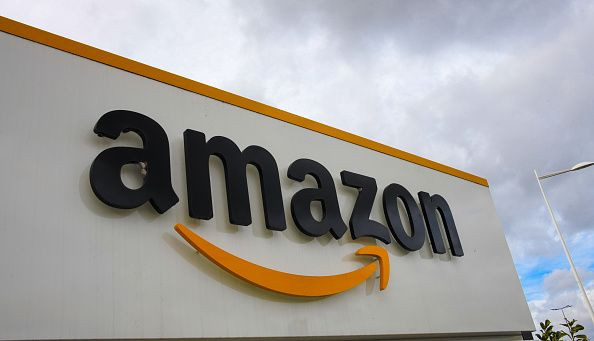Amazon Web Services Scores A Massive Deal To Oversee US Securities Trading

Amazon.com (NASDAQ:AMZN) announced on Wednesday that its cloud computing operation, Amazon Web Services (AWS), was joining forces with the Financial Industry Regulatory Authority (FINRA) as the cloud provider for the agency's Consolidated Audit Trail (CAT).
Amazon said in a press release that the deal would enable U.S. securities regulators to "improve securities market surveillance by creating an extensive audit trail of order information for all U.S. equity securities and listed options across U.S. markets and trading venues." Terms of the deal, including its dollar value and time span, were not disclosed.
CAT will have the capacity to ingest more than 100 billion market transactions per day, compiling data from 22 stock exchanges and 1,500 broker-dealer firms. This will allow the U.S. Securities and Exchange Commission (SEC) and self-regulatory organizations (SROs) to scan and analyze the CAT data.
This is a big win for Amazon after suffering a controversial defeat recently at the hands of rival cloud provider Microsoft (NASDAQ:MSFT).
A massive undertaking
The project will employ a wide swath of AWS systems to achieve its ambitious goals. In addition to data storage and warehousing, CAT will use the full range of security and compliance capabilities. The platform will also tap Amazon's analytics to "provide insight into market trading activities," which will help regulators identify anomalies in market data and detect illegal market activity.
FINRA is a government-authorized, not-for-profit organization that is charged by Congress with ensuring the fair and honest operations of the securities broker-dealer industry in the United States.
This isn't Amazon's first such project with FINRA. Amazon has been working with the regulator since 2012, and FINRA has since moved 97% of its application and 99% of its data to the AWS cloud.
The force was with Microsoft
In late October, the U.S. Department of Defense announced that it had awarded a $10 billion cloud computing contract to Microsoft, dealing a stinging blow to Amazon, which was long thought to be the front-runner for the lucrative Joint Enterprise Defense Infrastructure cloud (JEDI) contract.
Amazon has since filed suit in the U.S. Court of Federal Claims challenging the decision, complaining that the selection process was biased. President Donald Trump became personally embroiled in the proceedings, expressing public opposition to both Amazon and CEO Jeff Bezos, suggesting the contract wasn't competitively bid. Amazon's lawsuit suggests that Trump's bias and personal attacks cost the company the contract.

"It's critical for our country that the government and its elected leaders administer procurements objectively and in a manner that is free from political influence," an Amazon spokesman said regarding the company's decision to file a complaint. "Numerous aspects of the JEDI evaluation process contained clear deficiencies, errors, and unmistakable bias -- and it's important that these matters be examined and rectified."
Amazon also asked the court to protect sensitive information related to the case. "The complaint and related filings contain source selection sensitive information, as well as AWS's proprietary information, trade secrets, and confidential financial information, the public release of which would cause either party severe competitive harm," Amazon said in the filing, while also asking the court to issue an order that would delay the start of the contract. "The record in this bid protest likely will contain similarly sensitive information."
A highly competitive market
There's no question that AWS is still the industry leader in cloud computing, but the competition with Microsoft's Azure cloud has become increasingly fierce. In 2019, cloud computing has been Microsoft's fastest-growing business, up 64% year over year in the third quarter. Azure is, by all accounts, outpacing the slowing growth of AWS, which grew 35% during the same period.
The tech giants will continue to duke it out for leadership in the cloud computing arena, which boasts juicy margins and is highly scalable -- and has played a big role in the fortunes of both companies in recent years.
This article originally appeared in the Motley Fool.
Danny Vena owns shares of Amazon. The Motley Fool owns shares of and recommends Amazon and Microsoft and recommends the following options: long January 2021 $85 calls on Microsoft. The Motley Fool has a disclosure policy.





















